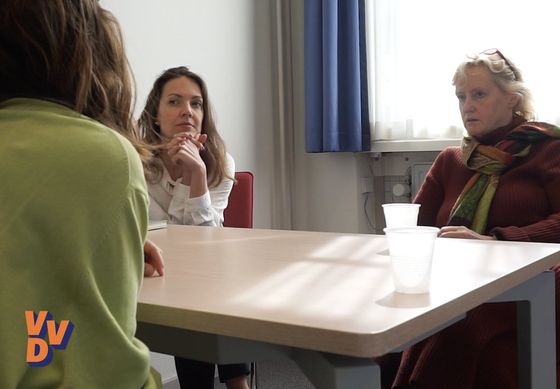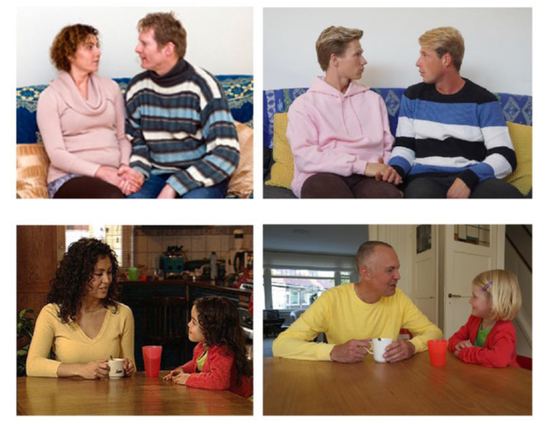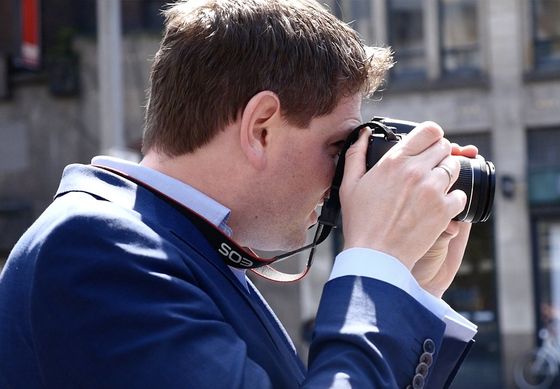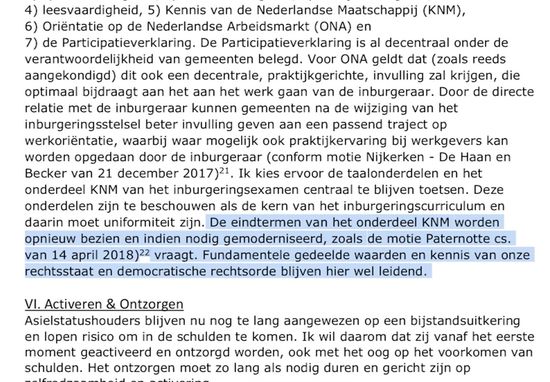
Integrating into a country that does not exist
'Nederl-anders' is a collection of progressive sounds from
people who want the Dutch integration course to be ‘anders’ (different). The project led to various publications which influenced the public opinion and made the Dutch parliament decide to update the Dutch integration course to the 21st century.
About the project
Welcome in the land of integration
"Can you please help me read?". It was around November 2017 and Arieke was in the library in Rotterdam. She had never spoken to a refugee before and suddenly this boy walked into her bubble. Together they opened an studybook on integration and Arieke could not believe what she saw: irrelevant questions and pictures of the Fortis Bank that does not exist any more, paper identity cards (and driver’s licenses), slums and knitting needles; this was obviously not the Netherlands as she knew it.
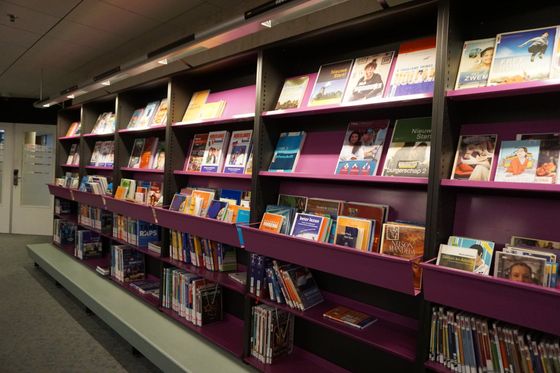
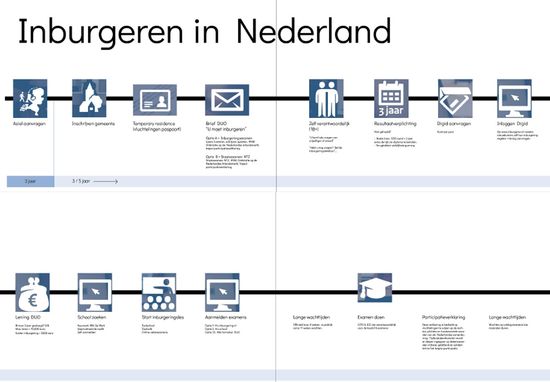
Understanding the system
In order to understand how it was possible that books on integration were so outdated, Arieke dived into the Dutch history of integration courses and made the complex system visual. To find out which parties were responsible for creating and keeping the integration exams up-to-date she called policy makers and asked them lots of questions. Because she believes that every system should be open for change.
For a few audio fragments listen below:
Interview and confrontation with publishing houses
Interview with minister Koolmees’s responsible spokesperson
How to complain?

Stereotyping in Dutch media
The 4 screenshots on the left are from 4 different Dutch newspapers who used the same photo to depict our integration system. This symbolizes a serious problem; we don't know how our integration system works or what it looks like. The integration process is not easily accessible and different studies showed that there is hardly any contact between newcomers and Dutch citizens. A dangerous development.
Field research
Integration courses form a closed system. Unless you are a newcomer yourself, you do not see how this system works. To gain insights from the field, Arieke went undercover as a newly arrived immigrant for one week in a Dutch library to experience how immigrants are treated. It turned out that our integration system as described on paper differs from our system in practice.
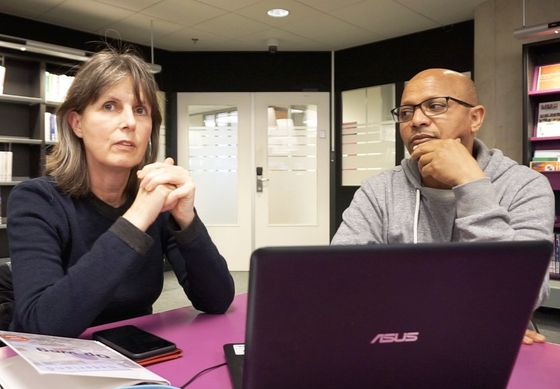
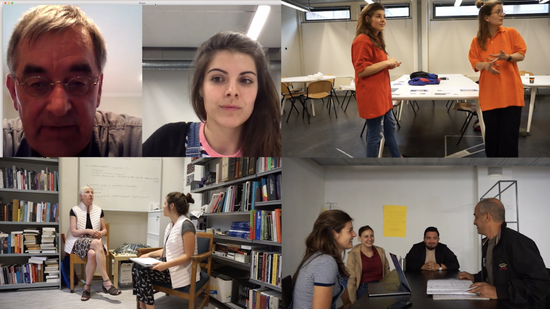
Changing the system together
You cannot change a system on your own, that's why Arieke started to collect sounds from people who also want the Dutch integration course to be ‘anders’ (different). She traveled across the Netherlands to team up with experts, newcomers, teachers, volunteers, educationalists, cultural anthropologists and many others.
Listen to a few interview fragments (in Dutch):
Interview Rogier van't Rood
Educationalist
Interview Irene Stengs
Cultural anthropologist
“Jezelf een vraag stellen, daarmee begint verzet. En dan die vraag aan een ander stellen”.- Remco Campert

Irene Stengs
Cultural anthropologist
'Zoals je niet over dé Nederlander kunt spreken kun je ook niet spreken over dé nieuwkomer. Je moet per persoon kijken wat voor mensen het zijn en wat zinnig is om te leren’.

Tamar de Waal
Political philosopher
'Ik denk dat het beleid heel schadelijk is voor de integratie van deze vluchtelingen in onze samenleving, op langere termijn'.

Rogier van 't Rood
Educationalist
'De inburgeringscursus is beledigend, niet respectvol, totale onzin en flauwekul. De toetsing is een aanfluiting en daar heeft ongetwijfeld geen deskundige pedagoog naar gekeken”.
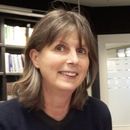
Janneke Koenen
Integration teacher
'Je kunt praten over hoe de integratie mislukt is, maar dat vind ik onzinnig. Je kunt beter iets doen'.
Interview strategy
Arieke disrupted settings of several interviews by bringing outdated clothes from the 70s, inspired by pictures from the integration course. Both she and the interviewee were to wear these garments. This way, she broke fixed patterns and ceased being for instance a student interviewing a Member of Parliament. Also, she made tangible how outdated the pictures were. This in turn led to interesting conversations.
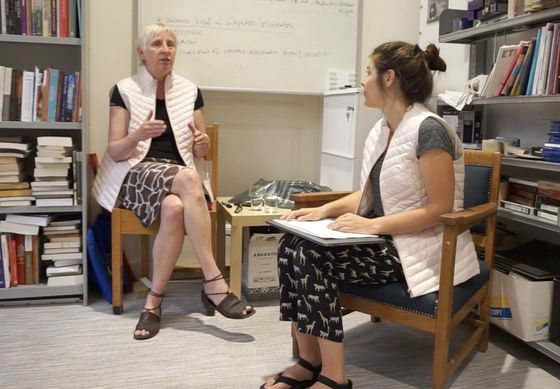
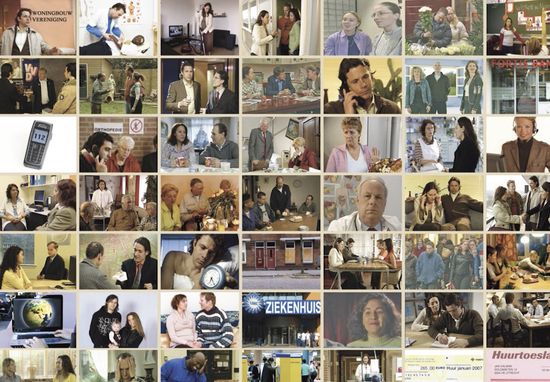
Collecting evidence
Before Arieke could publish her research results, she had to collect evidence that our integration system is indeed outdated. For 6 months she collected the oddest questions, pictures and videos that were part of the exams and courses. The more she collected the more patterns she came to see: gender roles, skin colours, occupations and services were not updated since the 70s.
Informing Members of Parliament
In The Hague, Arieke scheduled conversations with Members of Parliament, representing the political parties VVD, D66 and PVV. In these conversations, she handed out the action plan written together with 'Nederl-anders' she talked to and brainstormed with. The most important advice was that the Dutch integration system should aim at large-scale buddy systems. Arieke: 'You can update the exam today but that's not a long term solution. We have to work towards a practical education system, because you don't familiarize with a culture by reading books but by seeing and doing'.
